Battle of the Bulge 16 December 1944
 Peace_dollar88
Posts: 1,236 ✭✭✭✭✭
Peace_dollar88
Posts: 1,236 ✭✭✭✭✭
On this day 16 December 1944, My Grandpa (Technician 4th Grade) Bennett was in Sierck-les baines, France. A runner informed him he was to return to Head Quarters in Bastogne immediately. My Grandpa had heard people joke about that a time or two before. He was again instructed to go to Head Quarters. He knew at that point that this time was for real. His group moved out and was informed that Germany was attacking Belgium. This battle was to be later known as the Battle of the Bulge. This was such a hard time of year for my Grandpa. He would have flashbacks of what he faced when he was so young. He had parts of both of his feet amputated due to extreme frost bite. He use to talk of the snow bunched up against street poles and tell us that's how the snow use to bunch up against those that were dead in the same manner. Let us be thankful for what we have this holiday season. Let us thank a veteran for our freedoms that we enjoy because of the hardships they faced.
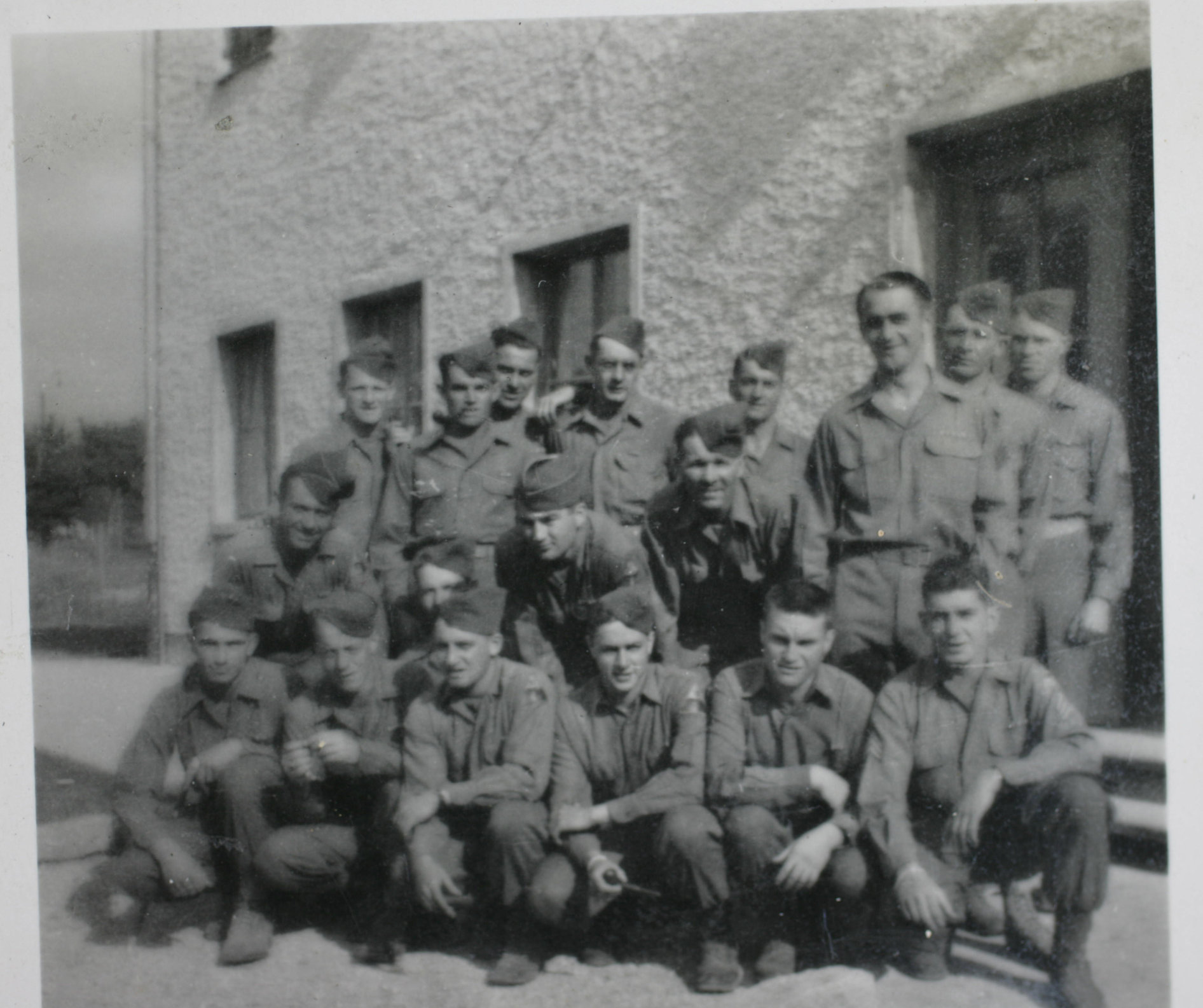
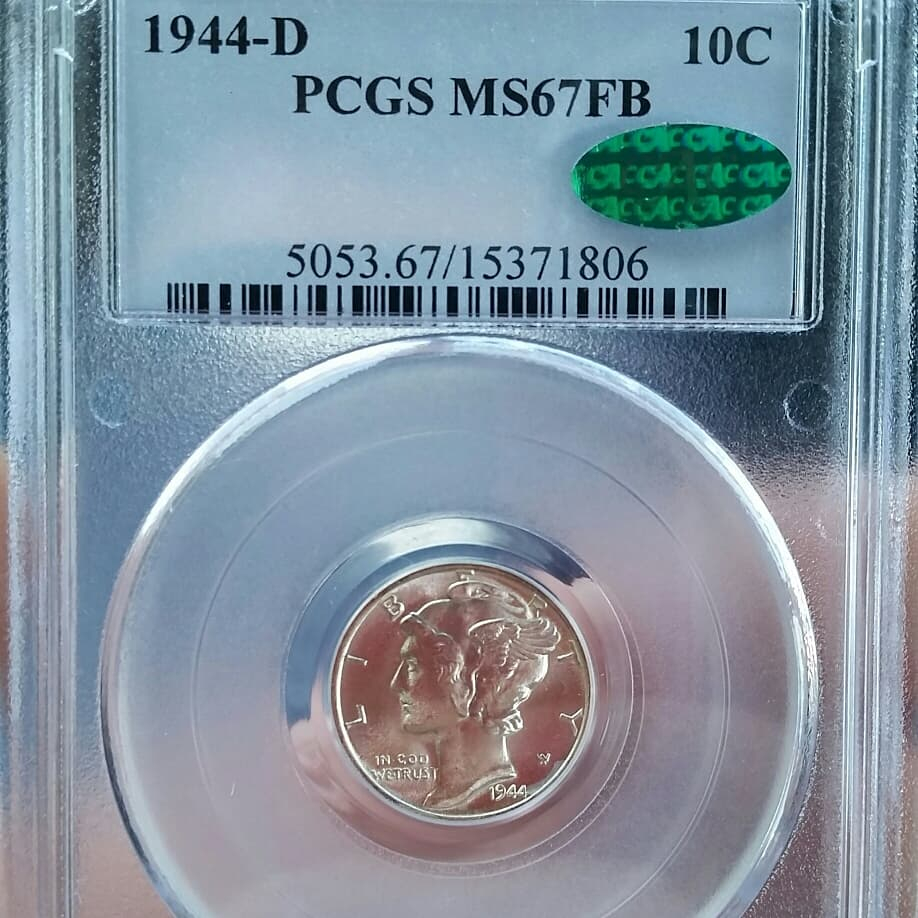
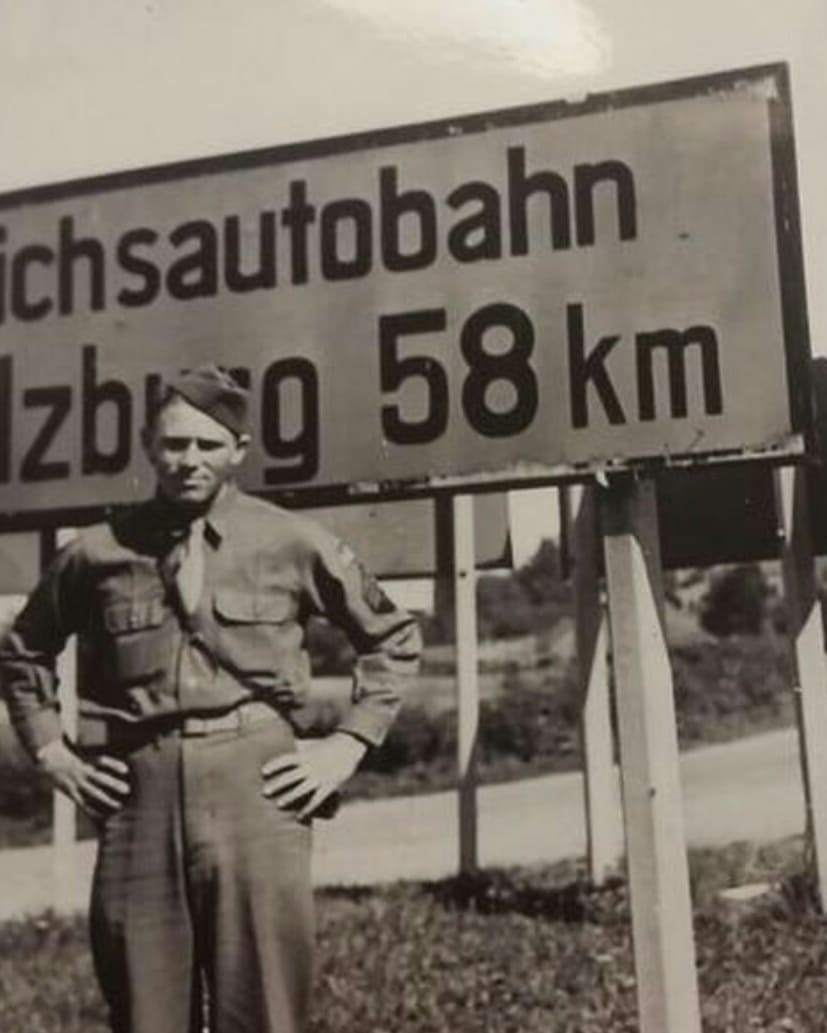
Anyone else enjoy collecting coins from a certain time period because of what was going on In the world when they were minted?
Comments
https://us.v-cdn.net/6027503/uploads/editor/z8/87gfnivmqzp1.jpeg
I give away money. I collect money.
I don’t love money . I do love the Lord God.
For those brave men and woman who put their lives on the line to keep us free we salute you!
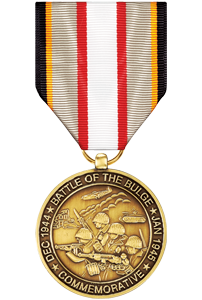
My granddad also fought in the Battle of the Bulge. After the war, he was interviewed by his hometown newspaper in Wisconsin:
June 22, 1945
Pfc. Robert R. Pankratz, of Kaukauna, a member of the 134th Infantry regiment in Germany narrowly escaped injury when four men near him were killed. “I heard a loud explosion when a man 20 in front of me stepped on a bobby trap that killed him. A medic attempting to reach him was killed five yards from me when he stepped on a mine. The Germans then began sending mortars towards us killing two men near me. I came out with a few scratches.”
When my grandma passed a couple years ago, I ended up with his medals and insignia. His medals didn't include the one Bigmarty58 posted, but it did include this one.
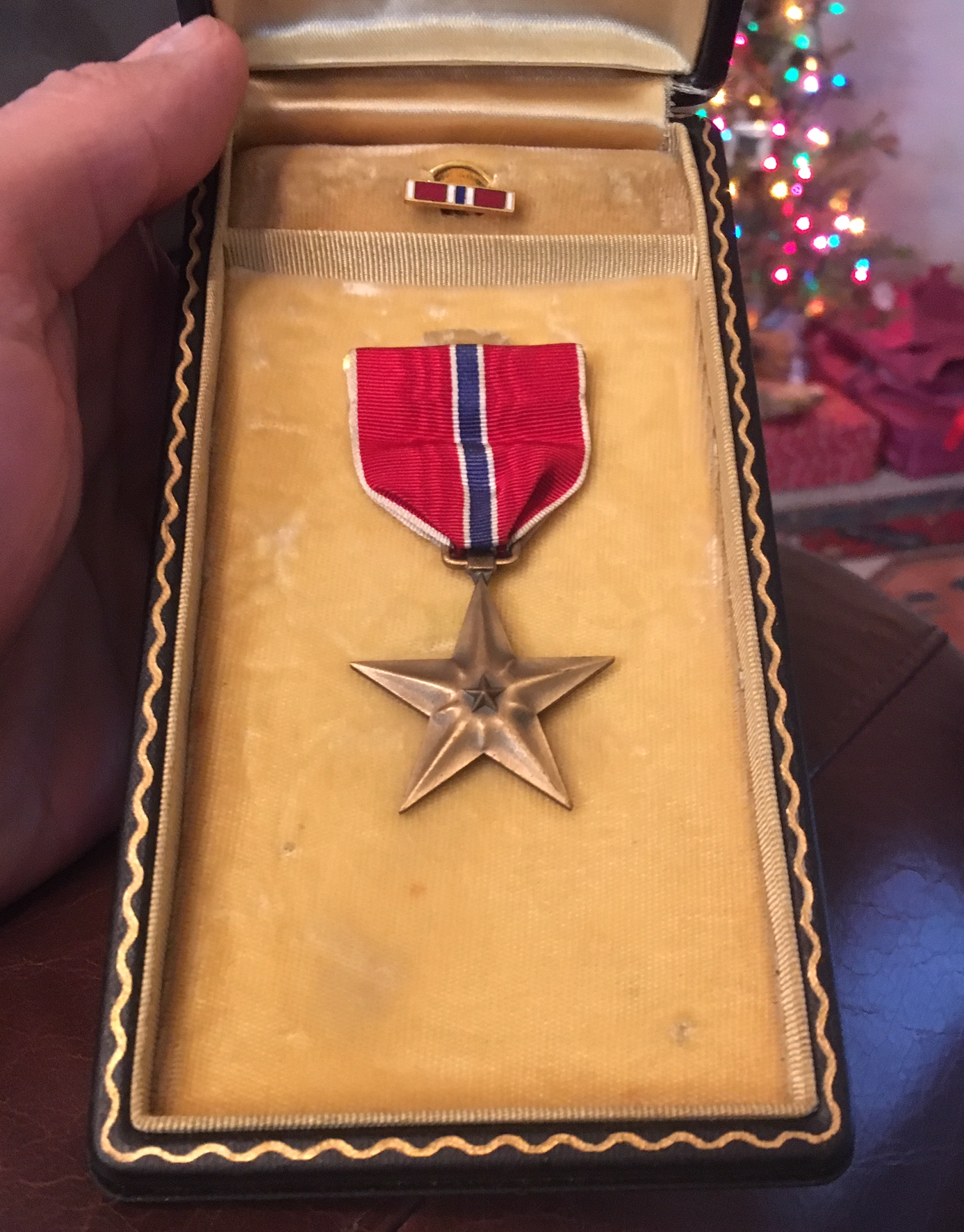
Great thread, bless your Grandads and all the young men who faced tough situations during the war. My dad was in the Battle of the Bulge. He landed in Normandy with the 30th infantry division, then proceeded as an air forward observer in a little two seat Cessna during the Battle of the Bulge. He never told me much about it till near the very end of his life. Needless to say I'm fortunate he survived in one piece. Makes me sad that there are so few of those old WWII vets left.
My dad receiving air medal from General Leland Hobbs
This is what it looked like(not his)
I have often wondered how the Germans managed to move such a large attack force into position without being detected. The main attacking forces and their supply convoys would have stretched for miles along the few roads that passed through the Ardennes.
Bad weather with heavy cloud cover.
I am so grateful for the greatest generation! I salute your grandpa!
Very touching post. Thanks for writing it up.
Personal history that should be recorded and passed on so it won't be forgotten. Thanks for posting this.
Coin collecting is all about history for many, certainly it is for me. My favorite side collections are registry year sets (ats) from the great depression era and I've been trying to add more and more to the set descriptions about the events of each year as well as working on finishing the sets. Many here have served in the armed forces and we all owe a debt of gratitude to those who served before and after us to protect these United States.
My Collection of Old Holders
Never a slave to one plastic brand will I ever be.
Thank you all for the touching reminiscences.
They were truly some brave men (and boys in some cases.)
My great-uncle Salomon Torrez was in the 705th Tank Destroyer Battalion, engaged at the Battle of the Bulge, and was KIA January 25, 1945.
I have included his picture, a copy of the unit's Presidential Citation, and nifty poem included in the 705th's history written after the war.
An extensive search of Battle of the Bulge history shows that the 705th Tank Destroyer Battalion was attached to the 101st Airborne Division, with two platoons serving with the 506th Infantry Regiment, whose Company E "Easy Company" was the one of Band of Brothers fame:
"Undergoing bitter cold, outnumbered four to one, surrounded by two SS Panzer divisions, under constant artillery fire and attack by some six other crack German divisions, the tank destroyers succeeded in stopping every armored thrust made by a brave and determined enemy while the 101st Airborne division repelled an almost continuous tide of German infantry attacks. This action took place between the dates 19, December and 17, January 1945 and will go down in the annals of military history as one of the most outstanding military feats of all time wherein one division of paratroopers with a battalion of tank destroyers sustained the full weight of ten divisions of the world's best troops."
From a history:
"Three of these ancillary units retained their tactical identity throughout the fight at Bastogne. The 705th Tank Destroyer Battalion (Lt. Col. Clifford Templeton) was in Germany with the Ninth Army when it received orders on the evening of the 18th to go south to Bastogne. By the time the column reached the Ourthe River, German tanks were so close at hand that Templeton had to detour to the west. To protect his trains he dropped off two platoons to hold the Ortheuville bridge, one of those accidents of war which have fateful consequences.
On the night of the 19th the battalion reached Bastogne. The 705th was equipped with the new self-propelled long-barreled 76-mm. gun which would permit a duel on equal terms with most of the German tank guns."
When I watched the movie Fury that came out a couple years ago, I couldn't control the tears--I know Hollywood isn't reality, but to see the furious tank battles and what those men went through . . . it was tough.
Thanks for this thread, and yes, I have started to collect anything related to this battle.
Gonna get me a $50 Octagonal someday. Some. Day.
That is the standard reason given. I have read it many times. I have never bought into it. Just why was there no warning? Were there no ground forces scouting the Ardennes? It didn't start snowing until the second day of the battle. The Germans had to stick to the few roads in the area as it was heavily forested. The use of roads was also critical because the German armored forces gas mileage would drop in half if the left they roads. They had a fuel shortage problem. (A significant percentage of the German armored forces losses would be due to lack of fuel.) Bastogne was critical because it was a major road hub in the area.
my Uncle died during this Battle.
Honoring those who gave their lives for freedom is a daily remembrance for me. I had my ass in the grass in Nam. I can't imagine the winter war. All war is bad. Peace Roy
BST: endeavor1967, synchr, kliao, Outhaul, Donttellthewife, U1Chicago, ajaan, mCarney1173, SurfinHi, MWallace, Sandman70gt, mustanggt, Pittstate03, Lazybones, Walkerguy21D, coinandcurrency242 , thebigeng, Collectorcoins, JimTyler, USMarine6, Elkevvo, Coll3ctor, Yorkshireman, CUKevin, ranshdow, CoinHunter4, bennybravo, Centsearcher, braddick, Windycity, ZoidMeister, mirabela, JJM, RichURich, Bullsitter, jmski52, LukeMarshall, coinsarefun, MichaelDixon, NickPatton, ProfLiz, Twobitcollector,Jesbroken oih82w8, DCW
Thanks to all the WW II Vets! We will remember.
In rememberance:
National Archives Remembers Battle of the Bulge with Featured Document Display - 70th Anniversary
https://www.archives.gov/press/press-releases/2015/nr15-16.html
Despite the appearances today, we have good young men and women defending our freedoms today. I have no doubt their courage and strength is even now being tested. Cheers, RickO
This history of the Ardennes Counteroffensive, and the Wikipedia page on same, had some good details on this. Apparently there were some Allied ground troops that noticed large German troop movements, and some Allied commanders that predicted the offensive.
an excerpt from the bio of Jules Reiver:
**Jules Reiver 1916-2004
Mark Borckardt of Heritage Galleries, in a letter to bidders in the 2006 Heritage catalog of the Jules Reiver collection, described Jules Reiver as “a collector's collector.” He was “a specialist who shared his knowledge and collections with anyone willing to learn, knowing that through sharing, numismatic knowledge was more than doubled.”
Jules Reiver was born to parents Hyman and Ethel Rothman Reiver on September 25, 1916. A lifelong Wilmington, DE resident, Reiver was a mechanical engineer with DuPont until called to the US Army in 1942. Jules rose to the rank of Major by the end of the war. Notable accomplishments in World War II include commanding the first anti-aircraft battery to land on Omaha Beach in Normandy in June 1944; turning back a German offensive aimed at a gasoline dump during the Battle of the Bulge (for which he earned the Bronze Star Medal); and being in the vanguard of the liberation of Paris. Reiver continued to serve post-WWII in the Army Reserve, retiring at the rank of Lieutenant Colonel in 1966.**
Full bio here (scroll down for Jules Reiver bio, though all are worth reading): jrcs.org/aboutjrcs_halloffame.php
turning back a German offensive aimed at a gasoline dump during the Battle of the Bulge (for which he earned the Bronze Star Medal)
there is a depiction of something similar in a movie, though I can't recall which one. I wonder if it's the one Mr. Reiver was involved in??
Nuts!
The movie was "Battle of the Bulge" (1965) staring Henry Fonda, Robert Shaw, and Robert Ryan. Great movie.
Worry is the interest you pay on a debt you may not owe.
"Paper money eventually returns to its intrinsic value---zero."----Voltaire
"Everything you say should be true, but not everything true should be said."----Voltaire
One of my Reiver coins
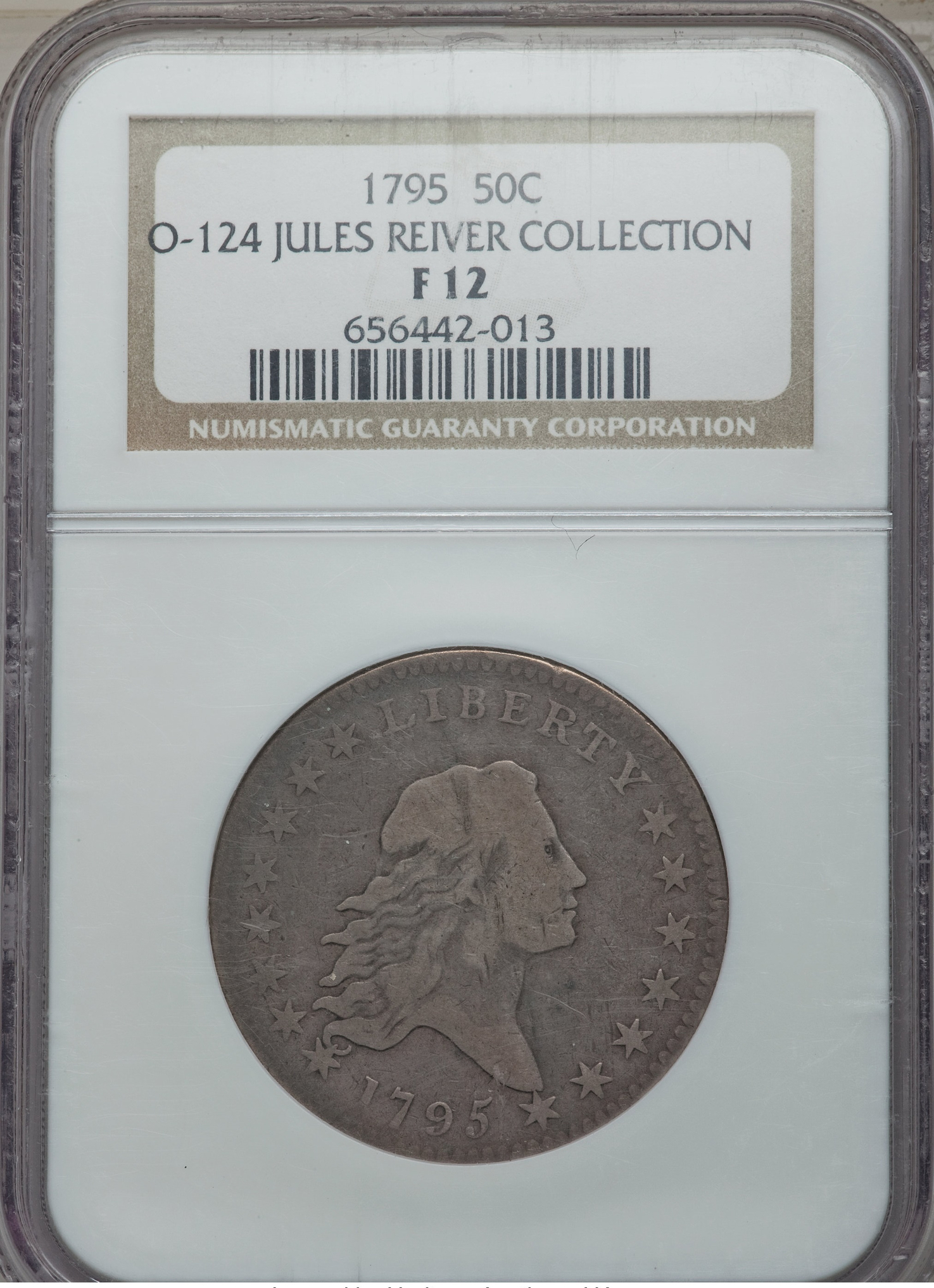
"The E-Sylum: Volume 5, Number 46, November 17, 2002, Article 18
JULES REIVER'S WARTIME EXPERIENCES
Monday was Veteran's Day, and I thought of my friend
Julius "Jules" Reiver of Wilmington, DE. I visited with
Jules and his wife Iona on many an evening several years
ago while traveling in Wilmington on business. Jules is
one of the finest numismatists in the country, and those
evenings are among my most pleasurable hobby memories.
So I gave him a call and spoke to both Jules and Iona
for a while. Those who don't know Jules well may not
be aware of his WW II experiences. As the commander
of an anti-aircraft unit he trained British troops on
the use of new American weapons, led his men onto
Omaha Beach on D-Day, and his unit played a key role
in turning the tide against the Germans in the Battle of the
Bulge. He was interviewed by war correspondent Ernie
Pyle and after the war, the role of "Lieutenant Colonel
Daniel Kiley", which was modeled after Reiver, was
played by Henry Fonda in the 1965 film, "Battle of the
Bulge." The Hollywood version bore only a slight
resemblance to reality, but 'That's Entertainment".
According to Jules, real life being the mess it is, what really
happened that day was a series of errors that would
have turned the war movie into a comedy. First, understand
that when aimed horizontally, anti-aircraft guns make dandy
anti-tank guns. Dispatched to guard a key fuel depot,
Reiver's unit came within yards of an advancing German
tank unit. One of his units' guns had become mired in the
mud and they were using vehicles to pull it out.
The roar of the enginess as they strained to pull the stuck
vehicle apparently fooled the Germans (who weren't yet
within sight) into thinking there was a larger unit of
Allied tanks awaiting them. So they turned away. Had
they advanced, Reiver's hamstrung unit could not have
stopped them. As it turned out, that one wrong turn was
a key turning point in the battle, and thus a key turning
point in the war for Europe.
Wayne Homren, Editor"
Pacific Northwest Numismatic Association
Bump! Great thread.
All I have to say is "NUTS".
Pete
My parents lived in Belgium in the 1970's. I was in the 1st Infantry, and was split between Germany and the US. There are a lot of Sherman tanks standing as memorials all over the area.
Buried away, I have some pictures, taken in December, moderate snow cover, foggy, including some of a Sherman tank, taken at various ranges in the daytime, but when you hit about 220 meters, the tank disappears into the weather. This was taken during the "bright" portion of the day.
When I was with the 2nd Armored in 1976, the Commanding General was MG Patton, son of THE General Patton. I still have the invitation to dinner, on his stationary, MG George S Patton, when he pinned on my Expert Infantry Badge. At dinner, he talked about that battle.